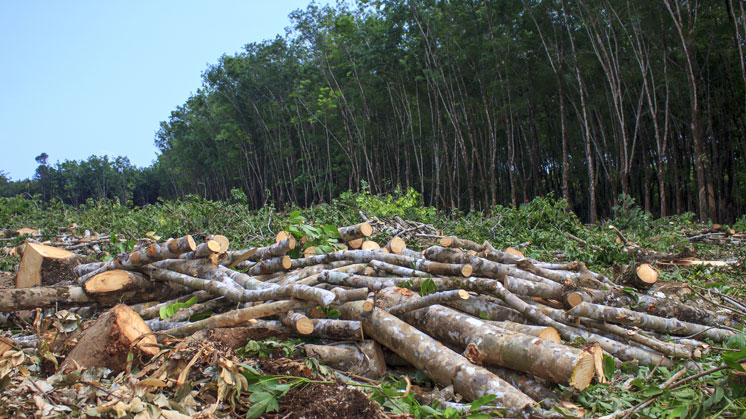Overexploitation of natural resources
What are the consequences of the overexploitation of natural resources?
Natural resources are those that the planet offers without the need for human intervention. They are essential our survival, but if they are consumed at a faster rate than their natural regeneration, as is currently the case, they can be exhausted. Then, we review the consequences and possible solutions to this problem.

Overexploitation: The end of natural resources
Would you like someone to tell you about it? Listen to this article. For those who want to change the world.
What are natural resources
There are two types of natural resources: renewable and non-renewable. The former are inexhaustible, like solar radiation, or their renewal is relatively rapid, as is the case with biomass. Non-renewable resources are those that exist in nature in a limited way because their regeneration involves the passage of many years, such as minerals and fossil fuels — oil, natural gas and coal —.
Human beings are depleting the planet's natural resources and standards of living will begin to decline by 2030 unless immediate action is taken. In 2022, for example, we have used up the natural capital available for 365 days of the year in just over 200 days, the World Wide Fund for Nature (WWF) has warned. That means that as of 28 July of that year, natural resources were already in the red, with humanity being in debt to the planet due to its overconsumption.
And every year the date when we enter ecological deficit is getting earlier and earlier, according to calculations by the Global Footprint Network, an organisation that has been researching how to manage the Earth's natural limits since 1971. The same study also points out that the world needs 1.75 planets at its disposal to meet its demands, although there is still time to reverse this situation: if we delay the day of overexploitation of the planet by 4.5 days each year, in 2050 we would return to a balance between consumption and production of natural resources.
Consequences of the overexploitation of natural resources
The uncontrolled consumption of natural resources has significant effects:
 Environmental
Environmental
The disappearance of habitats essential for flora and fauna and, therefore, the extinction of species. The International Union for Conservation of Nature (IUCN) states that more than 42,100 species are currently threatened with extinction, which means that 28 % of the species assessed to date are threatened.
 Economic
Economic
33% of the world's soils are moderately to highly degraded and more than 90% could be degraded by 2050, according to a United Nations Food and Agriculture Organization (FAO). If the erosion of fertile soil continues at the same rate, agricultural commodity prices will inevitably soar.
 For Health
For Health
If we do not take care of the forests there will be fewer CO2 Nota sinks and therefore more air pollution. According to the World Health Organization (WHO), almost the entire world's population (99%) breathes air that exceeds the organisation's own recommended air quality limits, with low and middle income countries suffering the greatest consequences of air pollution.
Solutions to the overexploitation of natural resources
The future, as stated in the United Nations Agenda 2030 for Sustainable Development, poses a double challenge to human beings: conserving the many forms and functions of nature and creating an equitable home for people on a finite planet. If we want to reverse this situation, we need, among other things, to:
Conserve natural capital
- Restore degraded ecosystems and their services.
- Halt the loss of priority habitats.
- Significantly expand the global network of protected areas.
Improve production systems
- Significantly reduce the objects, materials and resources used in the development of human life and the volume of waste in production systems.
- Manage resources in a sustainable manner.
- Promote the production of renewable energy.
Measures to curb
the overexploitation of natural resources
LAWS AND POLICIES
to regulate the
exploitation of natural,
resources and establish
environmental impact
assessment as an
essential requirement
for entire projects
environmental protection initiatives
renewable
and non-polluting
energies
care to maintain
ecosystem health
AWARENESS-RAISING
of public transport
and bicycles
recycling: reduce,
reuse and recycle
education in schools
agriculture and
ecological tourism
RESPONSIBLE CONSUMPTION
Consume more responsibly
- Promote lifestyles, like sustainable mobility, that leave a smaller environmental footprint.
- Change current energy consumption patterns.
- Promote healthy and sustainable consumption patterns.
Reorient financial flows
- Place a value on nature and natural resources.
- Take responsibility for environmental and social costs.
- Support and reward companies that promote conservation, sustainable resource management and innovation in their activities.





